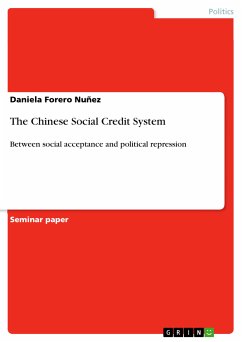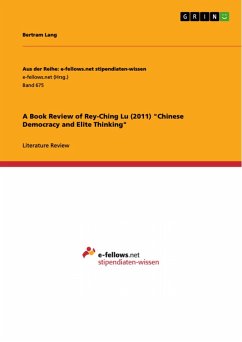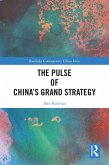Seminar paper from the year 2021 in the subject Politics - International Politics - Region: South Asia, grade: 1,0, University of Regensburg (Lehrstuhl für Internationale Politik und transatlantische Beziehungen), course: The Chinese Communist Party at 100: Constructions of Authoritarian Power, language: English, abstract: After nearly a century since the founding of the Chinese Communist Party (CCP), the government apparatus continues to adapt to the rapidly changing reality in order to solidify its rule and legitimacy. In light of vast technological developments and with the expanding economic impacts in the Chinese social structure, trust has been eroding and the traditional set of principles of values that once gave way to some of the most important social revolutions in Chinese history is being gradually replaced by normless behavior. Thus, the CCP sees itself confronted with new challenges for ensuring social governance and well-being, while guaranteeing the party's almighty power. This paper aims to explore to what extent the Chinese Social Credit System (SCS) might be regarded as a socially accepted programme for facilitating social governance by the Chinese Communist Party while reinforcing Chinese tradition and social trust, which might be threatened through a possible moral crisis that exacerbates in light of the expanding socio-economic modernization.
Dieser Download kann aus rechtlichen Gründen nur mit Rechnungsadresse in A, B, BG, CY, CZ, D, DK, EW, E, FIN, F, GR, HR, H, IRL, I, LT, L, LR, M, NL, PL, P, R, S, SLO, SK ausgeliefert werden.









